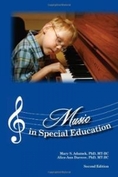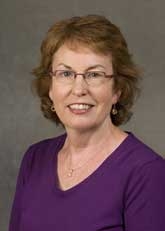Teaching Music to Older Students with Disabilities: Enjoyment, Engagement and Transition Skills
Over the past decade music educators have had an increasing role inthe education of students with disabilities. Now more than ever, music educators teach students with various disabilities in inclusive general music classrooms and performance classes. In addition, many music educators teach adapted music classes with students who have more severe disabilities in self-contained classrooms. Younger students with disabilities have had opportunities for music learning for many years. Now, many middle school and high school special education programs offer music classes for students with disabilities to provide a music learning experience at an age and developmentally appropriate level. Often this can be a challenge for music educators who have not had extensive experiences working with older students with disabilities.
Over 6 million students receive special education services in US schools, and approximately 50% of these students are between the ages of 12 and 21. This presentation will focus on issues related to teaching music to older students with disabilities to increase enjoyment, improve engagement and build transition skills necessary for post K-12 success. Older students can present a challenge to educators due to the discrepancy between chronological age and cognitive, communication and social abilities.
The presentation will feature a class called Music Experiences, which a curricular offering for the REACH program at The University of Iowa. REACH is an educational program that is focused on building successful transition and life skills for college-age students with disabilities. Many of these students have autism and/or mild to moderate cognitive disabilities. Other issues addressed include developing self-determination and leadership through music learning, determining age and ability appropriate music experiences, and using music skills to enhance self-expression and social relationships.
Over 6 million students receive special education services in US schools, and approximately 50% of these students are between the ages of 12 and 21. This presentation will focus on issues related to teaching music to older students with disabilities to increase enjoyment, improve engagement and build transition skills necessary for post K-12 success. Older students can present a challenge to educators due to the discrepancy between chronological age and cognitive, communication and social abilities.
The presentation will feature a class called Music Experiences, which a curricular offering for the REACH program at The University of Iowa. REACH is an educational program that is focused on building successful transition and life skills for college-age students with disabilities. Many of these students have autism and/or mild to moderate cognitive disabilities. Other issues addressed include developing self-determination and leadership through music learning, determining age and ability appropriate music experiences, and using music skills to enhance self-expression and social relationships.
| Teaching Music to Older Students with Disabilities | |
| File Size: | 61 kb |
| File Type: | |
Mary Adamek, Ph.D., MT-BCProfessor of Music Therapy
Director of the Music Therapy Program University of Iowa Iowa City, IA 
Mary Adamek, Ph.D., MT-BC, is the Director of the Music Therapy Program. Dr. Adamek co-authored the textbook, Music in Special Education, published by the American Music Therapy Association (AMTA) and she has contributed chapters in three textbooks published by AMTA, Effectiveness of Music Therapy Procedures: Documentation of Research and Clinical Practice,Models of Music Therapy Interventions in School Settings, and An Introduction to Music Therapy. She maintains an active leadership role in state, regional and national music therapy organizations and is a past-president of AMTA.
Mary Adamek's website at the University of Iowa |


